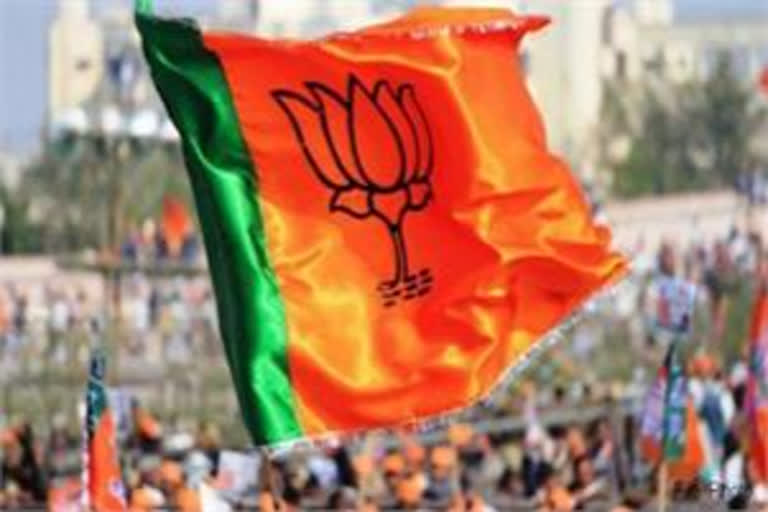New Delhi: In the run-up to the state assembly elections this year, Prime Minister Narendra Modi would have visited Assam six or seven times, possibly an electoral highlight even for the PM, strongly underlining the importance the northeastern state holds in the BJP’s scheme of things.
Elections in Assam are scheduled in three phases on March 27, April 1 and April 8.
What makes Assam particularly important this time?
Besides the fact that the party stands the best chance to win in Assam among all the five states going to the polls, the other states being West Bengal, Tamil Nadu, Kerala and Puducherry, Assam is the vital pivot on which the BJP-led NDA government’s Act East Policy (AEP) is hinged upon.
The AEP is primed to leverage Northeast India’s close cultural and ethnic ties to connect with the South-East Asian nations beginning from Myanmar and eastwards right up to Japan.
The AEP will also come in handy in the Indian, and also Japanese effort, to oppose China’s growing influence and sway in the Indo-China region.
Assam and the Northeast would be vital geographies in absorbing Japan’s growing interest to develop infrastructure in the region. In 2017, Japan had set up a body called ‘India-Japan Coordination Forum for Development of Northeast’ to build infrastructure in the region. One main reason for Japan to invest in the region would be the China factor.
With the extensive and ongoing farmer’s agitation eroding the BJP’s support and organizational base in many stretches of western Uttar Pradesh, Punjab, Haryana, and Rajasthan, the saffron party is on a lookout to strongly entrench itself and consolidate its base in new areas.
With the exception of Mizoram which has a Zoramthanga-led Mizo National Front (MNF) government, the other six states have BJP or BJP supported state governments. Assam, Arunachal Pradesh, Manipur, and Tripura have BJP-headed governments while the BJP is a ruling partner in Meghalaya and Nagaland.
Also read:Assam Assembly polls: Cong issues list of candidates for Titabor, 2 other seats
With Assam being the gateway to the Northeast, it is very important that the BJP retains power in the state so that the party’s grip on the entire region remains steadfast.
However, there are several challenges that the BJP will have to address.
Firstly, the inner party discontent over issues of ticket distribution. With many political party leaders making a beeline to the BJP in the run-up to the polls, there is bound to be a conflict between old BJP party men and the new inclusions.
Moreover, the public image of the state BJP leadership is that of an uncomfortable one with CM Sarbananda Sonowal and powerful minister Himanta Biswa Sarma not enjoying the best of relationships. This can be got over only by proactive campaigning by strong central leaders like PM Modi and home minister Amit Shah.
Secondly, many experts feel that while BJP is widely expected to bag the biggest number of seats this time, the going won’t be an easy one nor is there any guarantee that the party will be able to form government on its own.
Thirdly, the Assamese-speaking majority in the Brahmaputra Valley is not very happy with the BJP strongly pushing for the Citizenship Amendment Act (CAA), a move that saw widespread disturbance across the state and discontentment in the region.
Fourthly, the joint Assam Jatiya Parishad (AJP) and Raijor Dal combine—a new political entity in the state politics—is an unknown force and many would term it to be the ‘dark horse’ capable of throwing up the unexpected.
Also read:AIUDF announces first list for Assam polls, renominates 7 sitting MLAs
While the AJP has its origins in the anti-CAA protests that were led by the powerful All Assam Students' Union and the Asom Jatiyatabadi Yuba Chatra Parishad (AJYCP), Raijor Dal aspires to represent the interest of the peasantry across Assam. That is itself would be a formidable combination on paper.
Fifthly, close fights have been predicted for the BJP in many constituencies especially in western Assam from the unusual combine of the Congress, the AIUDF and the Bodo People's Front (BPF).
At the same time, the opposition to the BJP suffers from severe financial crunch that took a turn for the worse due to the nightmarish economic implications after COVID 19 went on the rampage.
Just for the record, in the 2016 state polls, the BJP won in 60 of the total of 126 seats in the state. Its allies the AGP bagged 14 while the BPF won 12. On the other hand, the Congress won in 26, the AIUDF in 13. One independent candidate had won.
All in all, while the prospects may be considered optimistic for the BJP, the challenges are many, and therefore necessitating pro-active involvement by central leaders like PM Modi.
Also read:TMC seeks adjournment of Parliament session, cites elections in five states
